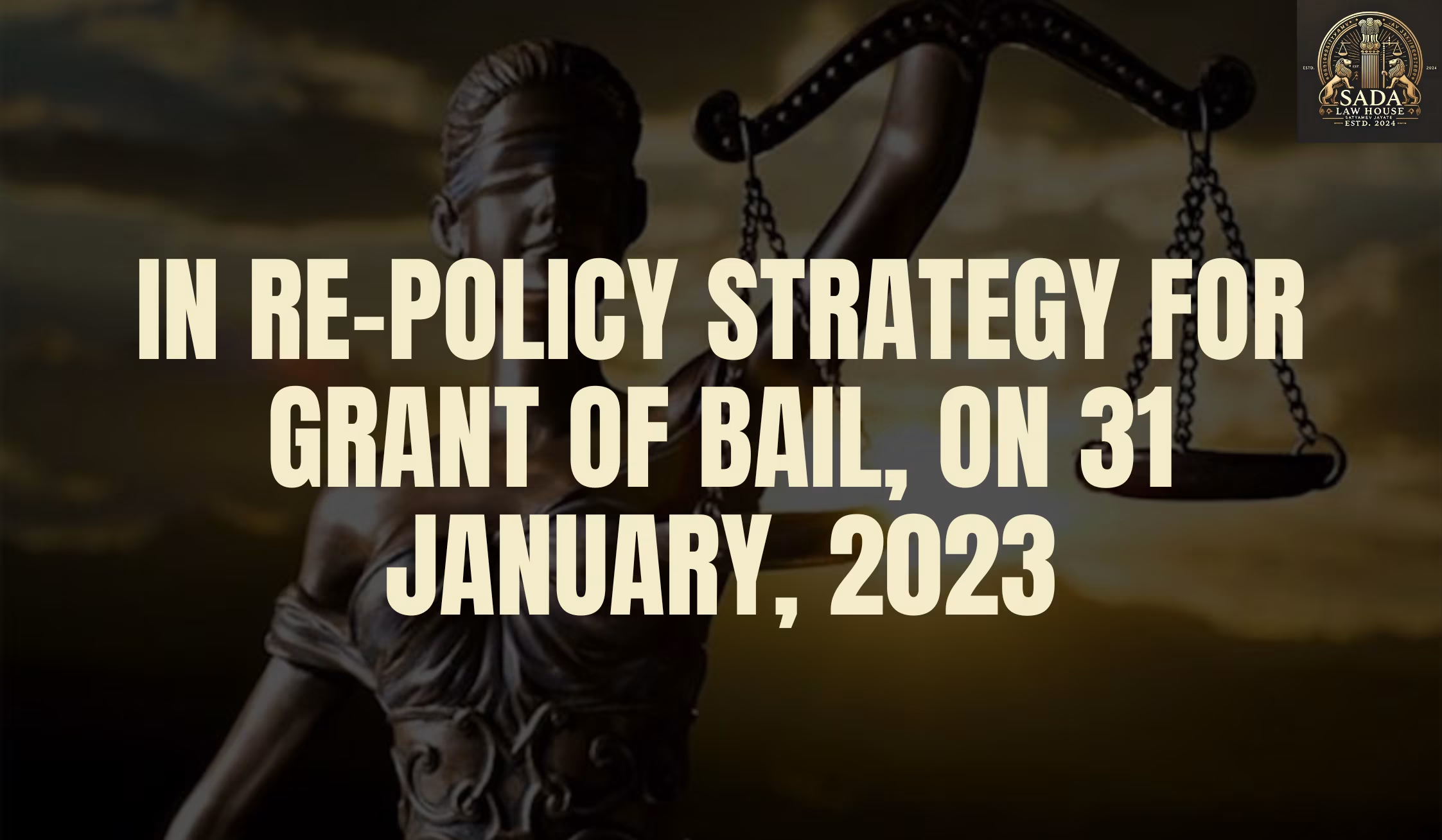Supreme Court Judgment on Bail Policy Strategy: Ensuring Timely Release of Undertrial Prisoners in India (January 2023)
- REHA BHARGAV
- 18 June 2025

Explore the landmark Supreme Court of India judgment of January 31, 2023, addressing systemic delays in the release of undertrial prisoners in India. Learn about the new bail policy strategy, electronic bail order transmission, and the role of legal aid authorities in safeguarding personal liberty under Article 21.
Introduction: Addressing Delays in Bail Enforcement
The Supreme Court of India, in In Re: Policy Strategy for Grant of Bail (SMWP (Crl) No. 4/2021), delivered a significant judgment on January 31, 2023, focusing on reducing delays in the release of undertrial prisoners granted bail. Despite bail orders, many detainees remained incarcerated due to procedural inefficiencies and administrative hurdles, often affecting the poor and marginalized.
Facts of the Case: Systemic Bail Release Delays
The Court suo motu initiated the case to investigate the widespread problem where undertrial prisoners continued to languish in jail even after bail was granted. Amicus Curiae Mr. Gaurav Agrawal, representing the National Legal Services Authority (India), highlighted the absence of standardized electronic communication between courts and prison authorities and the lack of effective tracking mechanisms for bail order implementation.
Key Issues Considered by the Supreme Court
The impact of the absence of a digital bail order transmission system on unjustified incarceration post-bail.
Need for reliable mechanisms to track and monitor the execution of bail release orders.
The crucial role of legal aid institutions such as NALSA, State Legal Services Authorities (SLSAs) , and District Legal Services Authorities (DLSAs) in facilitating timely prisoner release.
Judicial and administrative reforms necessary to protect the fundamental right to personal liberty under Article 21 of the Indian Constitution.
Arguments Presented
Petitioner’s Submissions (Amicus Curiae)
Thousands of undertrial prisoners remain incarcerated despite bail orders due to delays in communication and fulfillment of bail conditions.
Lack of a centralized digital system to electronically transmit bail orders to prison authorities.
Proposal for integration with National Informatics Centre’s e-prison software for real-time electronic bail order transmission.
Automatic alerts if prisoners are not released within seven days post-bail grant.
Enhanced role for legal aid authorities to assist undertrial prisoners, especially those who are poor or illiterate.
Periodic reporting to identify bottlenecks and improve accountability.
Respondents’ Submissions
Admission of systemic delays caused by manual transmission and lack of coordination between courts and prisons.
Limitations in technological infrastructure, especially in rural and smaller states.
Support for digital integration but concerns about staffing and training for automatic alerts.
Agreement on the importance of legal aid institutions in facilitating prisoner release.
Willingness to cooperate with reforms, contingent on infrastructure and funding support.
Supreme Court Judgment Highlights
The two-judge bench comprising Justices Sanjay Kishan Kaul and Abhay S. Oka emphasized the constitutional right to liberty under Article 21. They underscored that granting bail must translate into actual release without unreasonable delay.
Key Directions Issued by the Court
Implementation of a digital system for electronic transmission of bail orders integrated with the e-Prison portal.
Automated alarms triggered if a prisoner is not released within seven days of bail grant.
Active participation of District Legal Services Authorities (DLSAs) to assist prisoners in fulfilling bail requirements.
Regular compliance monitoring and reporting to High Courts and State Legal Services Authorities (SLSAs).
This judgment represents a major step towards a technology-driven, rights-based approach ensuring bail enforcement aligns with constitutional guarantees.
Conclusion: A Landmark Step to Uphold Personal Liberty
The Supreme Court’s judgment in In Re: Policy Strategy for Grant of Bail marks a transformative move in India’s criminal justice system. By mandating electronic bail order transmission, automated monitoring, and stronger legal aid intervention, the Court has addressed longstanding systemic delays that disproportionately impact undertrial prisoners.
The ruling reinforces that liberty is the norm, not the exception, and that procedural inefficiencies must not deprive citizens of their fundamental rights under Article 21.
Case Laws






